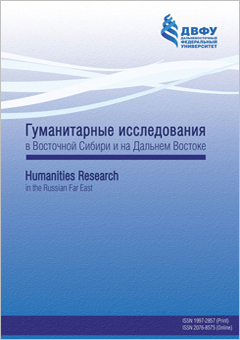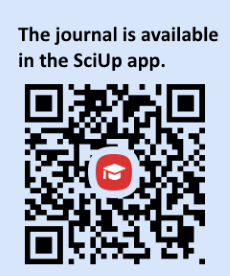Colonial Korea in the eyes of Japanese historians: main directions of Japanese historiography in the late XIXth – XXth centuries
DOI:
https://doi.org/10.24866/1997-2857/2023-4/140-144Keywords:
Korean history, colonial history, colonial administration, Japanese historiographyAbstract
В статье предпринята попытка показать, как японские историки конца ХIХ и ХХ вв. оценивали Корею в целом и период японского управления страной (1910–1945 гг.) в частности. Автор рассматривает основные направления и ключевые концепции японской историографии истории Кореи, а также их изменения на фоне событий XX в.
Downloads
References
История Кореи (с древнейших времен до наших дней): в 2-х т. Т. 2. М.: Наука, 1974.
История Кореи (Новое прочтение). М.: РОССПЭН, 2003.
Кодзики – Записи о деяниях древности. Т. 1. СПб.: Шар, 1994.
Лещенко Н.Ф. «Революция Мэйдзи» в работах японских историков-марксистов. М.: Наука, 1984.
Нихон сёки – Анналы Японии: в 2-х т. СПб.: Гиперион, 1997.
Топеха П.П. К вопросу о характере «Мэйдзи исин» // Историко-филологические исследования. М.: Наука, 1967. С. 499–504.
Хан Ёнъу. История Кореи: новый взгляд. М.: Восточная литература, 2010.
Нихон рэкиси [История Японии]. Токио: Иванами сётэн, 1962.
Ямабэ Кэнтаро. Никкан хэйго: сё:си [Краткая история японской аннексии Кореи]. Токио: Иванами сётэн, 1965.
Akita, G. and Palmer, B., 2015. The Japanese colonial legacy in Korea. 1910–1945. A new perspective. Honolulu: University of Hawaii Press.
Shin, G.W. and Robinson, M. eds., 1999. Colonial modernity in Korea. Cambridge: Harvard University Press.
Downloads
Published
Issue
Section
License
Copyright (c) 2023 Любовь Всеволодовна Овчинникова

This work is licensed under a Creative Commons Attribution-NonCommercial-NoDerivatives 4.0 International License.















